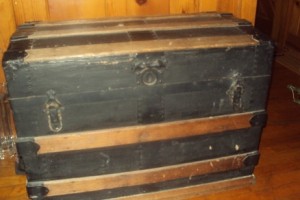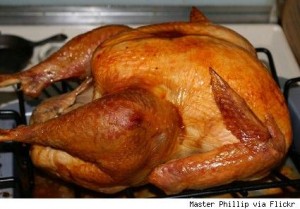We all know moths can eat clothes and rust can eat metal, but the real message of Matthew 6:20 is that storing too many treasures is risky, and not just for the treasures.
But what about the second part of that verse, thieves breaking in to steal? It’s not just one, but multiple thieves. This week someone asked me, “Do you ever get scared living alone?”
I answered “no” but last night did have a flash-fear moment. While brushing my teeth in the upstairs bathroom, I thought I heard someone crawling on the roof. Since the room has a dormer window, the roof was only inches over my head, and in an instant of wild imagination, I pictured a furtive figure moving along the shingles toward the bathroom window with a desire to break in.
I took a deep breath and pulled back the curtain ever-so-slightly to take a peek, hoping I wouldn’t be nose-to-nose with a thief. And there on the snowy roof was the explanation: raccoon paw prints.
The Matthew verse about thieves isn’t meant to frighten us but to caution us not to store too much on earth that’s worth stealing. Scripture does tell us, though, there’s one category of stuff we’re supposed to store: treasures in heaven.
What is that?
As a little child I brought pennies to Sunday school knotted in the corner of Mom’s linen hankie, eager to unwrap them and drop them in the offering basket. I figured those pennies magically ascended from the basket to God’s home in heaven where he saved them for lofty purposes.
Then I grew into the double digit years, and common sense told me my offering coins were the definition of “treasures in heaven.” Now, however, I see God’s treasure is not money at all, although dollars can evolve into heavenly treasure by what they accomplish. The Lord does, however, let us know there’s a wide variety of other ways we can store it.
Helping someone who needs help is one example. And if we set aside something we wanted to do for ourselves in order to help that person, the treasure is a bit bigger.
We can also store heavenly treasure by making righteous choices when no one is watching us.
Another way is to squelch our natural selfishness in favor of demonstrating the nine fruits of the Spirit (love, joy, peace, patience, gentleness, faithfulness, goodness kindness and self-control). Each is a treasure in heaven.
I believe sincere prayer for the interests of others is also a treasure to God. And doing our part to explain the Gospel to those who will listen has heavenly worth, too.
Any time we act in love toward another, especially if that one is difficult to love, we’re safely storing something in heaven. In short, whenever we obey God, it’s a spiritual ka-ching no thief can touch.
Interestingly, some translations of Matthew 6:20 say, “Store up for yourselves treasures in heaven.” In God’s economy, what we do on earth for others just may end up benefiting us in the next world.
It wouldn’t surprise me at all if our loving Lord has set it up exactly that way.
“Store up for yourselves treasures in heaven, where moths and rust cannot destroy, and thieves do not break in and steal.” (Matthew 6:20)


